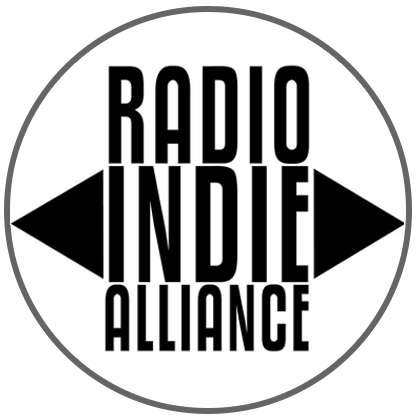By Kevin J. Mann
UK Independent
(United Kingdom)
I have been wanting to write something about this in ages as you occasionally get a lot of questions about this if you are a radio presenter or own and run an Internet, FM or DAB Radio Station (and potentially not forgetting music magazines who may need photos as well) than we get asked these questions a lot. Especially from upcoming artists who want to actually go out there and get a fan base for their music and hopefully more importantly get people buying your music may it be from iTunes, CD Baby, Amazon, Bandcamp or Reverbnation. Although selling your music on said websites is out of scope for today, so let's concentrate on the submissions themselves.
I want to start off with the don’ts as there are some really common mistakes that will lead to a radio station or radio presenter from completely ignoring you or sending a rejection letter and playing your competitors music giving them the edge and not you. I would however like to start with the most common of mistakes.
Lazy short messages
Yes, that right every radio presenter or radio station has received one of these. “Please give us some radio air-play, we are Band XYZ” with no MP3 of their music, no way of knowing if you can buy their music, if they have any social media, no background to their personalities or their past, how they formed, and more importantly no links to their music. and live gig history. A majority of Radio Presenters don't get paid and therefore don't have the time to wade through social media to find where you exist, how to get hold of your music and we will usually see that as a barometer of the quality of your music (e.g. lazy and poor) and will more often than not will just press the “delete” button.
Being Rude Or Sending Radio Station / Radio Presenters On Wild Goose Chases
This one really should be common sense and in all fairness I have met some musicians that have such fantastic and brilliant personalities that I continue to be friends with them years after the first submission. However there has been rare occasions where musicians have what I can only describe as “X Factor / American Idol Syndrome” where they expect you to play their music (even if it is full of swearing or an unacceptable submission) leads to swearing and general abuse (like you see in the popular TV music reality shows) . This gets you no-where with radio presenters, radio stations and promoters as they would likely overlook you for being rude for an artist or band who is a lot nicer and easier to deal with. There is another reason for being nice because we are more likely to help you more later on further down the road with future music releases. Also if radio presenters are pointed to different people in different locations to get the material needed then it can be off-putting
Untagged Files
Tagging your music files is one of the most misunderstood aspects of music submission. (believe it or not radio presenters also forget to tag their radio show audio files to radio stations) A lot of people don't seem to know how to tag files, don't understand the reason for tagging files, or (as in the case of some radio presenters themselves and musicians) don’t want to or too lazy to do it when actually it is quite easy to do. You can go to the edit audio (meta) tags option in an audio editing software like Audacity, Wavepad or Adobe Audition for example. Failing that there are plenty of free MP3 tagging software (Like MP3 TAG seen here http://www.mp3tag.de/en/index.html) which you can google and download. To use these all you need to do is insert your file, type in artist name and track name, and click save. Job Done! The reason for tagging files is two fold. First it makes it easier for radio presenters and radio stations to play your files as radio play out systems can read your files, radio servers can read your files which makes it easier for radio stations to playlist you and give you regular air-play. More to the point it means the musician's name and the track name comes up on radio station websites, iTunes and TuneIn when your record is playing and if listeners like it they are more inclined to follow you and more importantly buy the record.
Tell us about yourself - Develop A One Sheet
There is certain information that I look for as a radio presenter to promote you to the fullest and showcase your music in the best possible light (Alongside playing your tagged MP3 on the radio of course) and the best way to do this in the most direct way is to present information about yourself in a document or PDF called a one sheet. Which is essentially a one page advert for your personality, your music and your live music gigs and performances. I look for this in this order
1. Band / Artist Name
2. Biography And History
3. Musical Influences
4. Single Name and Release Date
5. Album / EP Name and Release Date (If Applicable)
6. Story Behind Single / Album / EP
7. Where To Buy Your Music
8. Your Achievements / Awards / Famous Musicians / Producers / Festivals (If Applicable)
9. Upcoming Live Performances, Festivals and Gigs (if Applicable)
10. Official Website and Social Media Links.
That may seem an awful lot of information on what could essentially be a single A4 piece of paper be it electronically. However if done properly can be an absolute godsend to radio presenters and allows us to gauge who you are effectively and efficiently. Also gives us just the right bullet points to have a full overview not just of you but your music as well.
Research the Radio Station / Radio Presenter You Are Submitting To
This is incredibly important after all there is no point submitting a Dance track to a Rock music radio presenter or radio station. My top tip is to actually visit the official websites of radio stations and of radio presenters respectively to work out who is best positioned to help you as a music artist and get to what you eventually want to achieve. (For example my own official website is http://kevinjohnmann.wix.com/radio ) The other top tip is to actually listen to the radio shows or radio stations output before submitting to them. After all you never know you might like what you hear and become a regular listener yourself, much in the same way the radio presenter may become a massive fan of your music and work; after all it is a two way street.
Register For Radio Air-Play Royalties
This is pretty much an optional before you decide to submit to radio presenters, radio stations as it is not for every musician or band as there is a bit of an upside and a downside with registering with your country's authorities on music royalties as this usually comes with an annual membership fee for doing so. (As there is an annual membership fee for radio stations as well) However there is an upside where you get paid royalties by these organizations whenever your record gets played by radio stations giving musicians and bands a small minimal income. How it works and what organizations you need to contact varies from country to country; and it has been know that these organizations have international agreements with each other in a majority of circumstances. For the UK you will find the organizations you need to contact are PRS ( https://www.prsformusic.com/Pages/default.aspx ) and PPL ( http://www.ppluk.com ) For The USA there is ASCAP ( http://www.ascap.com ) and SoundExchange ( http://www.soundexchange.com ) For Australia there is APRA AMCOS ( http://apraamcos.com.au ) and for Japan JASRAC ( http://www.jasrac.or.jp/ejhp/ ) but you may need to look into it for your own country, ultimately this is a decision for the musician or band to make as it is not taken lightly..
Try To Put Your Personality In Your Submissions
Possibly easier said than done but potentially important is to try and put your personality in your submissions as radio stations and radio presenters get an awful lot of submissions that are extremely similar to each other, so in fairness it can be difficult to go out there and make an impact. So you need to put your personalities out there within your writing or indeed MP3 submissions. I must admit a separate MP3 introduction by the artist or band would make me sit up and take notice, an artistic campaign or anything viral like a video blog or marketing campaign that is unusual whilst still being professional is perfect for this and gives us that extra talking point.
Foster Long Term Relationships With Promoters, Radio Stations & Radio Presenters
This can be difficult I must admit as radio stations and radio presenters in particularly those that deal with unsigned and independent artists are always looking for something new for their listeners to listen to; constantly looking for the next big thing, artist or band. Although radio presenters and radio stations can't have your music in rotation 24/7 but if you pick some decent presenters suited to your genre and take interest in radio presenters lives outside of music and radio; then radio presenters usually do repay the compliment and take an interest in your life as well. I must admit the music I talk the most pleasure in showcasing are those artists and bands that I have seen evolve and grow over a long period of time. Those that I have shared dialogue and memories with (even if they are just on-line) This is however the most important and the final point to make is that promoting your music doesn't begin and end with that one music submission to radio presenters and radio stations alike, it's a continual and ongoing process to promote your work and musical career, after all if you are a musician then you pretty much are a musician for life, and nothing makes me happier than watching musicians grow personally as people as well as professionally in their music careers.
I hope that this article can lead to better music submissions for all concerned and I realize that I don't particularly cover everything here but I hope it leads to a decent starting point for bands that have recently formed or artists just starting to produce music and taking their fantastic records to the masses.

